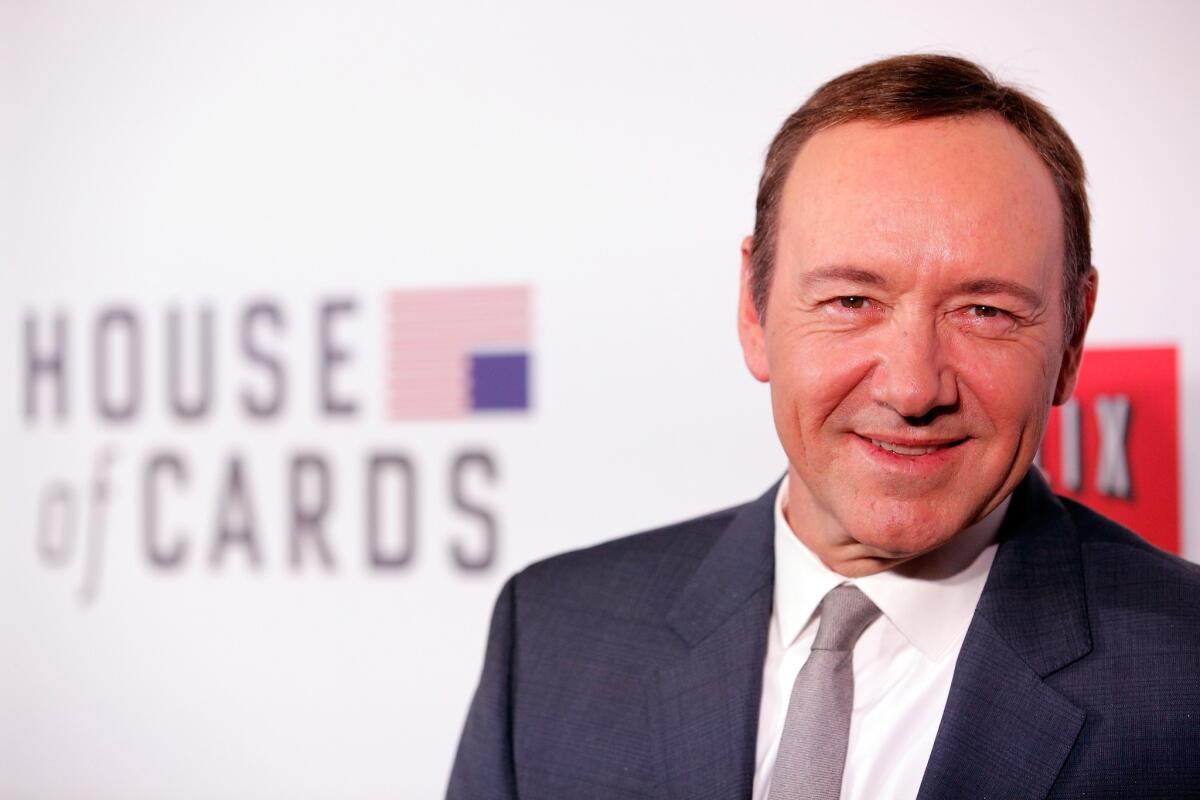Emmys pick Netflix pix

- Share via
On Thursday, members of the Academy of Television Arts & Sciences handed out the first Emmy nomination to a television series that wasn’t delivered over the airwaves or cable. In fact, three such series — two dramas and a comedy, all delivered by Netflix over the Internet — garnered a total of 14 nominations. With that, the academy acknowledged the latest step in the evolution of TV: the expansion of high-quality original programming from broadcasting and cable to broadband. That’s not necessarily welcome news for traditional TV networks and pay-TV operators, but it’s an encouraging sign for everyone else.
After a brief internal tussle over whether to confine online shows to a special awards niche, the academy became officially indifferent in 2007 to how programs are delivered. Web-based productions, however, were slow to attract the star power or money needed to make full-length episodes that could compete with those put out by the Hollywood studios. Netflix took a leap of faith two years ago when it committed a reported $100 million to “House of Cards,” an acerbic political thriller from producer/directer David Fincher. The series earned nine nominations in the drama and music categories Thursday.
Netflix is just one of several broadband companies investing in original content. In some ways, we’re watching a replay of how HBO and other cable networks transformed themselves from repositories of reruns and older movies to showcases for original programs. Whether they can attract the viewers needed to sustain that transformation remains to be seen; Netflix doesn’t disclose how many people have watched “House of Cards” or any other program. But new business models are emerging to take advantage of the Internet’s unique properties, including interactivity and the enormous amount of data it generates about viewers. That data could make it easier for programmers to figure out what audiences will tune in.
EMMYS 2013: Top nominees | Recap | Winners timeline
Granted, some of the most powerful forces in the industry are determined to protect the current pay-TV business model against the challengers online. The idea of viewers paying for single channels or programs is anathema to the programming bundles that they’ve forced on the market. But TV is a hits-driven business, and viewers inevitably gravitate toward whatever programming service is showing the programs they want to watch. Meanwhile, millions of Internet-connected TV sets are being sold every year, along with countless Internet-connected disc players, game consoles and set-top boxes. The creative forces in the TV industry have noticed. And so, now, have Emmy voters.
More to Read
A cure for the common opinion
Get thought-provoking perspectives with our weekly newsletter.
You may occasionally receive promotional content from the Los Angeles Times.









